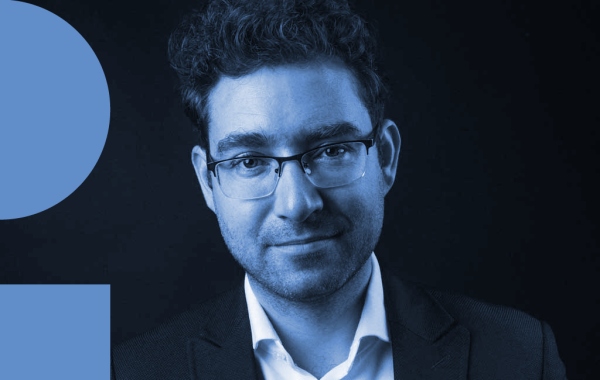False narratives, real consequences
The Mieroszewski Centre, the Association of Ukrainians in Norway and the Stand With Ukraine Foundation invited to a conference on one of the most important challenges in the region today - the impact of Russian disinformation on Ukrainian refugees.
Disinformation is not just about spreading fake news—it is a strategic operation designed to exert long-term influence over societies and political decisions. The "False Narratives, Real Consequences" conference provided a platform for analyzing Russian information operations and their impact on Europe. Experts from Poland, Ukraine, and Norway discussed propaganda methods and explored strategies to counteract manipulation effectively.
Information warfare: new technologies, old goals
Russian disinformation campaigns have evolved alongside technological advancements. A decade ago, they primarily relied on traditional media and internet forums. Today, these operations employ automation, artificial intelligence, and coordinated networks of websites and social media accounts to spread propaganda more efficiently and widely.
Propaganda against refugees – Poland vs. Norway
During the expert panel, the differences in anti-Ukrainian propaganda across different countries were analyzed.
- In Poland, propaganda narratives focus on the alleged burden Ukrainian refugees place on the social system, claims that they take jobs from locals, and fabricated stories of increased crime rates.
- In Norway, misinformation suggests that refugees are passive, disengaged from society, and being used for political purposes.
- In both countries, manipulative stories such as "Ukrainian women stealing husbands" or "organ trafficking networks" are spread—false narratives designed to evoke fear and distrust toward refugees.
However, Russian psychological operations go beyond refugees. Their broader goal is to undermine international relations and weaken support for Ukraine. Increasingly, disinformation messages challenge the legitimacy of humanitarian and military aid to Ukraine.
The consequences of disinformation – real threats to society
The impact of propaganda is not just theoretical—it directly affects social life, political decisions, and security.
- Social polarization – disinformation campaigns fuel internal conflicts, increase hostility toward refugees, and erode trust in institutions.
- Threats to democracy – the spread of false information weakens media credibility, institutions, and public debates.
- Psychological warfare – Russia uses disinformation to intimidate Western societies by spreading fears of nuclear war or an impending catastrophe.
Experts highlighted another alarming aspect: Russia’s disinformation operations are long-term. These are not isolated fake news stories but decades-long campaigns aimed at reshaping societal perceptions and attitudes.
How to defend against disinformation?
Experts emphasized several key methods:
- identifying sources - it is worth using sites and watching accounts that do not reproduce Russian propaganda content,
- media education - teaching people how to recognise manipulation in the media is key,
- international cooperation - the fight against disinformation requires cooperation, both within public institutions and NGOs,
- active defence - instead of just dementing fake news, there is also a need to conduct information activities ahead of disinformation.
The "False Narratives, Real Consequences" conference marked another step in the fight against disinformation. Experts agreed that Europe has been engaged in hybrid warfare for years, with disinformation being one of its key battlegrounds.
To win this war, a new approach is needed—more active, better coordinated, and based on cross-national and societal collaboration.
Below is the conference programme.
9:00-9:30
Opening
- Øystein Bø Ambassador of Norway to Poland
- Wasyl Bodnar Ambassador of Ukraine to Poland
Representatives of the partners:
- Artur Mazurek - Ministry of Culture and National Heritage
- Natalia Panchenko - Stand With Ukraine Foundation
- Ernest Wyciszkiewicz, The Mieroszewski Centre
9:30-11:00
How does Russia manipulate the image of Ukrainian refugees?
- Moderator: Natalia Panchenko
- Speakers: Iryna Ziemliana, Kamil Basaj, John Faerseth
11:30-12:00
Special address
- Andriy Kovalenko, Centre for Countering Disinformation at the National Security and Defence Council (online)
12:00-13:30
Social impact of disinformation on refugees from Ukraine in Poland and Norway
- Moderator: Iryna Ziemliana
- Speakers: Julia Bohuslawska, Bjørn Johan Berger, Natalia Yeremeeva, Natalia Panchenko
13:30-13:35
Special address
- Vitaly Portnikov, Ukrainian journalist
14:30-16:00
Effective fight against disinformation - strategies, institutions and international cooperation
- Moderator: Kamil Basaj
- Speakers: Prof. Agnieszka Legucka, Dr Katarzyna Bąkowicz, Paweł Terpiłowski, Prof. Krzysztof Żęgota, Lt Col Krzysztof Ciesielski
16:00
Closing
































